Past Events & Webinars
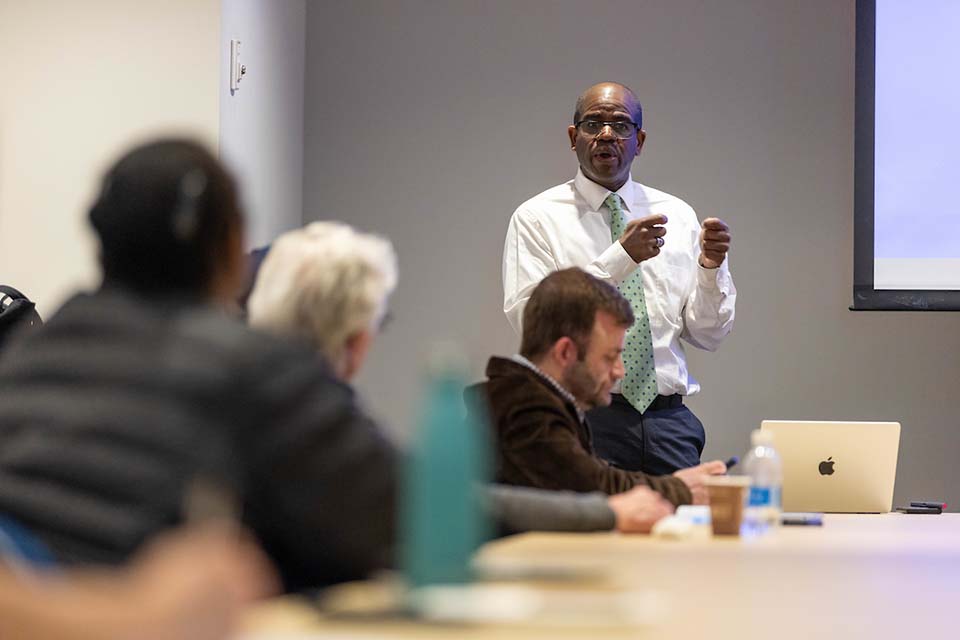
Programs & Events
- October 26, 2025: Southwest Institute: Addressing Antisemitism and Intolerance in Our Schools, Tucson, AZ
- October 23, 2025: K-12 Day of Learning: Understanding Jewish Identity and Experience, Philadelphia, PA
- August 14, 2025: Day of Learning on Identifying and Addressing Antisemitism in Our Schools, Lansing, MI
- June 9-13, 2025: Summer Institute on Antisemitism in Higher Education
- March 3-6, 2025 & July 14-17, 2024: JCC Executive Seminars
- June 3-7, 2024: Summer Institute on Countering Antisemitism in Higher Education
- May 6, 2024: Symposium for Middle & High School Leaders and Educators
Webinars: Navigating Antisemitism on Campus and Beyond
- Closed Classrooms: An Analysis of College Syllabi on Contentious Issues
- Creating Safe Dialogue Among Administrators and Staff: Addressing Traumatic Invalidation, Antisemitism and Radicalization
- Naming The Silence: Understanding Trauma and Invalidation in K-12
- The Trump Administration and Campus Antisemitism
- Defending Democracy: Confronting Racism, Antisemitism, and the Politics of Othering
- Antisemitic Propaganda as a Form of Information Warfare against Democracies
- Cutting Edge Research on Antisemitism
- Student and Faculty Misconduct on Campus and Free Speech
- When is Anti-Zionism Antisemitism?
- Making Sense of Freedom of Speech, Academic Freedom, and Title VI
- Teaching the Arab-Israeli Conflict
- Investigating the Nexus Between Antisemitism, Universities, and Terror Financing
- The Rebirth of Antisemitism in the 21st Century
December 4, 2025
Trump is waging war against higher education. While most Americans don’t support the attack, they share his distrust. This lack of faith in our universities is attributed to campus antisemitism and political lopsidedness among faculty, especially when it comes to teaching contentious issues, including the Israeli-Palestinian conflict. Despite these frequent and long-standing allegations of bias, however, remarkably little hard evidence has ever been adduced to prove them. We recently discovered just that evidence when we analyzed a database of 27 million college syllabi. In this short talk, we will review our findings and address how college administrators might encourage more responsible and broadminded curriculums, build a university culture of robust liberal debate, and begin winning back public trust.
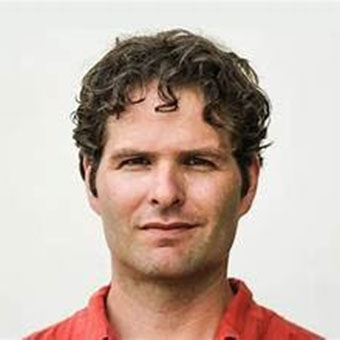
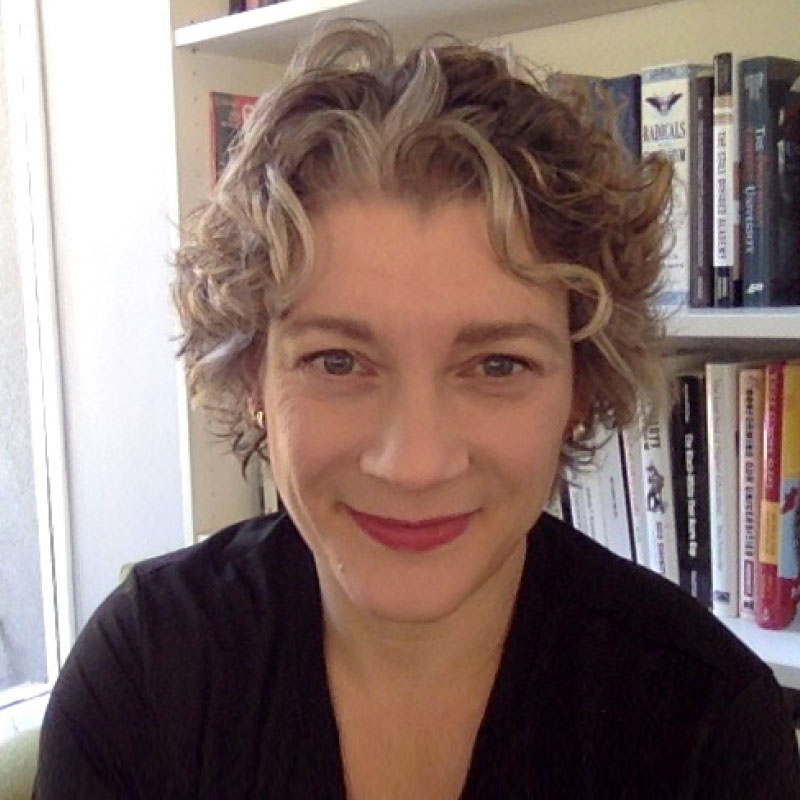
Presented by Professors Yuval Avnur (Scripps College, Claremont) and Stephanie Muravchik (Claremont McKenna College)
Yuval Avnur is Professor of Philosophy at Scripps College, Claremont. He is author of numerous works on skepticism, contemporary issues concerning the spread of information, the history of philosophy (especially David Hume and Blaise Pascal), and philosophy of religion. Originally from Israel, Avnur moved to the US at age 7, and now lives in Claremont with his wife (an illustrator) and two kids.
Stephanie Muravchik teaches in the Government Department at Claremont McKenna College. She is the author of "American Protestantism in an Age of Psychology" (Cambridge, 2011) and the co-author, with Jon A. Shields, of "Trump’s Democrats" (Brookings, 2020) and "The Republican Civil War: What Liz Cheney’s Wyoming Tells Us About a Divided American Right" (forthcoming, Oxford). She is also an associate fellow of the Institute for Advanced Studies in Culture at the University of Virginia.
November 10, 2025
Watch the VIDEOAntisemitism—and the traumatic invalidation that often accompanies it— has impacted students and staff across educational institutions, creating heightened stress, fear, and division. This session offers a trauma-informed dialogue framework specifically for administrators and support staff, designed to surface and validate the experiences of those affected by antisemitic bias, repair relational ruptures, and cultivate a shared commitment to psychological safety. Participants will learn how to recognize and interrupt patterns of invalidation, facilitate conversations that honor the pain of targeted individuals, and co-create norms that prevent future harm. The session will also explore how to validate students’ experiences while holding them accountable for academic responsibilities, fostering a balanced approach to support and structure. The session will also address how antisemitism—if unacknowledged—can contribute to radicalization, and how trauma-aware responses can prevent further polarization, helping campuses remain inclusive, safe, and grounded in shared values.
 Presented by Dr. Miri Bar-Halpern, Director of Trauma Training and Services at Parents for Peace and a Lecturer in Psychology at Harvard Medical School, where she supervises psychology interns and psychiatry residents. With two decades of experience across clinical, academic, tech startup, and policy settings, she has developed global training programs and public health initiatives focused on resilience, healing, and recovery—especially in the face of extremism, identity-based violence, and chronic stress.
Presented by Dr. Miri Bar-Halpern, Director of Trauma Training and Services at Parents for Peace and a Lecturer in Psychology at Harvard Medical School, where she supervises psychology interns and psychiatry residents. With two decades of experience across clinical, academic, tech startup, and policy settings, she has developed global training programs and public health initiatives focused on resilience, healing, and recovery—especially in the face of extremism, identity-based violence, and chronic stress.
Dr. Bar-Halpern is a nationally recognized trauma expert and a leading researcher on traumatic invalidation—a phenomenon she explores in both clinical practice and academic work. She has authored treatment manuals, led therapy groups, and presented widely on trauma, radicalization, and the psychological toll of societal exclusion. Her publications include peer-reviewed chapters and articles on trauma and emotion regulation, as well as the children’s book Becoming a Superhero: A Book for Children Who Have Been Exposed to Trauma. She also advises digital health companies and develops trauma-informed trainings that integrate strategies to recognize and repair traumatic invalidation across clinical, educational, and organizational settings.
Since the October 7 Hamas attack and the rise in antisemitism and extremism, Dr. Bar-Halpern has led coordinated mental health efforts to support affected individuals and communities—organizing consultations, therapy groups, campus outreach, and educational webinars. She regularly speaks on the intersection of antisemitism, trauma, and radicalization, offering a trauma-informed lens on complex sociopolitical dynamics.
She provides supervision and consultation on burnout, vicarious trauma, post-traumatic growth, and culturally responsive, trauma-informed care. Dr. Bar-Halpern is also the co-host of the podcast Our Stories Matter, produced by the Trauma Informed Learning Alliance.
November 10, 2025
In the wake of rising antisemitism and widespread communal trauma, Jewish families are experiencing profound grief, fear, and invalidation. This session offers a supportive and empowering space for community members to come together, learn, and heal.
Through the lens of resilience-centered approach, participants will explore how antisemitism and traumatic invalidation affect individuals and families, and how we can respond effectively. The session will include interactive tools for supporting individuals and communities, guidance for parents navigating school-based challenges, and strategies for bridging divides across communities through safe activism and dialogue.
Whether you are personally affected or seeking to stand in allyship, this gathering will offer a path toward resilience, connection, and collective action.
 Presented by Dr. Miri Bar-Halpern, Director of Trauma Training and Services at Parents for Peace and a Lecturer in Psychology at Harvard Medical School, where she supervises psychology interns and psychiatry residents. With two decades of experience across clinical, academic, tech startup, and policy settings, she has developed global training programs and public health initiatives focused on resilience, healing, and recovery—especially in the face of extremism, identity-based violence, and chronic stress.
Presented by Dr. Miri Bar-Halpern, Director of Trauma Training and Services at Parents for Peace and a Lecturer in Psychology at Harvard Medical School, where she supervises psychology interns and psychiatry residents. With two decades of experience across clinical, academic, tech startup, and policy settings, she has developed global training programs and public health initiatives focused on resilience, healing, and recovery—especially in the face of extremism, identity-based violence, and chronic stress.
Dr. Bar-Halpern is a nationally recognized trauma expert and a leading researcher on traumatic invalidation—a phenomenon she explores in both clinical practice and academic work. She has authored treatment manuals, led therapy groups, and presented widely on trauma, radicalization, and the psychological toll of societal exclusion. Her publications include peer-reviewed chapters and articles on trauma and emotion regulation, as well as the children’s book Becoming a Superhero: A Book for Children Who Have Been Exposed to Trauma. She also advises digital health companies and develops trauma-informed trainings that integrate strategies to recognize and repair traumatic invalidation across clinical, educational, and organizational settings.
Since the October 7 Hamas attack and the rise in antisemitism and extremism, Dr. Bar-Halpern has led coordinated mental health efforts to support affected individuals and communities—organizing consultations, therapy groups, campus outreach, and educational webinars. She regularly speaks on the intersection of antisemitism, trauma, and radicalization, offering a trauma-informed lens on complex sociopolitical dynamics.
She provides supervision and consultation on burnout, vicarious trauma, post-traumatic growth, and culturally responsive, trauma-informed care. Dr. Bar-Halpern is also the co-host of the podcast Our Stories Matter, produced by the Trauma Informed Learning Alliance.
October 16, 2025
An exploration of the Trump Administration’s approach to confronting campus antisemitism as well as recent lawsuits in this area.
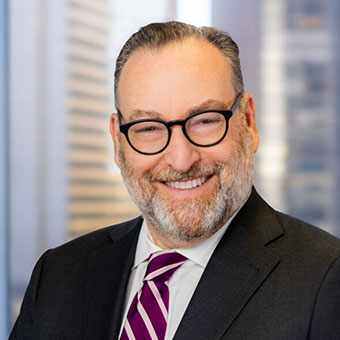 Presented by Hon. Kenneth L. Marcus, an internationally recognized expert in civil and human rights, as well as a leader in the fight against antisemitism on and off university campuses. He is the Founder, Chairman, and CEO of The Louis D. Brandeis Center for Human Rights Under Law, the leading civil rights legal organization fighting antisemitism. The New York Times has called him “The Man Who Helped Redefine Campus Anti-Semitism.” He has been described, in that paper, as “the single most effective and respected force” to combat antisemitism.
Presented by Hon. Kenneth L. Marcus, an internationally recognized expert in civil and human rights, as well as a leader in the fight against antisemitism on and off university campuses. He is the Founder, Chairman, and CEO of The Louis D. Brandeis Center for Human Rights Under Law, the leading civil rights legal organization fighting antisemitism. The New York Times has called him “The Man Who Helped Redefine Campus Anti-Semitism.” He has been described, in that paper, as “the single most effective and respected force” to combat antisemitism.
During his public service career, Marcus served as Assistant U.S. Secretary of Education for Civil Rights; Staff Director at the U.S. Commission on Civil Rights; and General Deputy Assistant U.S. Secretary of Housing and Urban Development for Fair Housing and Equal Opportunity.
In academia, he serves as Professorial Lecturer in Law at George Washington University. He formerly held the Lillie and Nathan Ackerman Chair in Equality and Justice in America at the City University of New York’s Bernard M. Baruch College, served as Visiting Research Professor of Political Science at Yeshiva University, and was a Board of Visitors member at George Mason University and Distinguished Senior Fellow at that university’s law school. He is a member of the editorial board of the Journal of Contemporary Antisemitism and previously served as Associate Editor of the Journal for the Study of Anti-Semitism.
Marcus is also author of "The Definition of Anti-Semitism" (Oxford University Press) and "Jewish Identity and Civil Rights in America" (Cambridge University Press). He has published widely in academic journals as well as in more popular venues such as The Wall Street Journal, Washington Post, Newsweek, USA Today, and Politico. He is a graduate of Williams College and the University of California at Berkeley School of Law.
Earlier in his career, he was a litigation partner in two major law firms, where he conducted complex commercial and constitutional litigation. He currently chairs the Executive Committee of the Federalist Society for Law & Public Policy Civil Rights Practice Group.
April 10, 2025
Democracy is under threat—not just from authoritarian movements, but from the forces of racism, antisemitism, and division that fuel them. Race Forward’s Executive Vice President Eric K. Ward explores how the politics of othering weaken democratic societies and empower extremism.
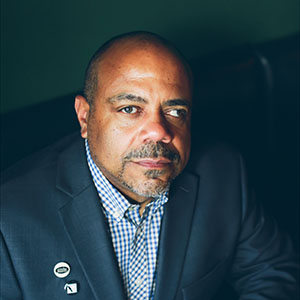
Drawing from decades of frontline experience, he unpacks the deep connections between white nationalism, antisemitism, and attacks on civil rights—and offers a path forward rooted in solidarity and action. This engaging session challenges us to recognize the patterns of exclusion, resist the pull of polarization, and build a democracy that truly includes us all.
Presented by Eric K. Ward, a nationally recognized civil rights leader, strategist, and storyteller whose work bridges grassroots activism, governance, philanthropy, and pop culture. As Executive Vice President of Race Forward, he leads efforts to dismantle systemic racism and advance inclusive democracy. With nearly four decades of leadership, Eric is known for addressing the intersections of authoritarianism, hate violence, and community resilience with clarity and innovation.
March 25, 2025
Authoritarian states have long deployed antisemitism in their ideological warfare against democracies. During the Cold War, the USSR was the largest purveyor of antisemitic propaganda and disinformation globally as it sought to undermine the US and its ally, Israel. By dressing up tropes from antisemitic conspiracy theory as "anti-Zionism," it managed to sell them to a wide variety of audiences across the globe. Today, state actors such as Russia, China, and Iran target young Americans with the same toxic tropes, presenting them as opposition to Israel.
In this lecture we'll survey "anti-Zionist" antisemitism as a form of information warfare targeting democracies; discuss what specifically makes it antisemitic; and talk about why it is critical that democracies learn to resist it.

Presented by Izabella Tabarovsky, a scholar of Soviet antizionism and contemporary antisemitism. She is a senior advisor with the Kennan Institute at the Wilson Center; a fellow with ISGAP and the London Centre for the Study of Contemporary Antisemitism; and a contributing writer to Tablet. Her writings have appeared in Fathom, Sapir, Quillette, and Newsweek, among others, as well as in several essay collections, including Jewish Priorities: 65 Proposals for the Future of Our People (Wicked Son Press); The Rebirth of Antisemitism in the 21st Century: From the Academic Boycott Campaign to the Mainstream (Routledge); and Mapping the New Left Antisemitism: The Fathom Essays (Routledge).
February 11, 2025
Professors Len Saxe (Brandeis University), Eitan Hersh (Tufts University), and Rachel Fish (Brandeis University) will share their research findings related to college students in the U.S., Jewish and non-Jewish.
Administrators will gain insights on how this research can impact higher education policy, and identify opportunities for meaningful education and skills building for students, faculty, and administrators.
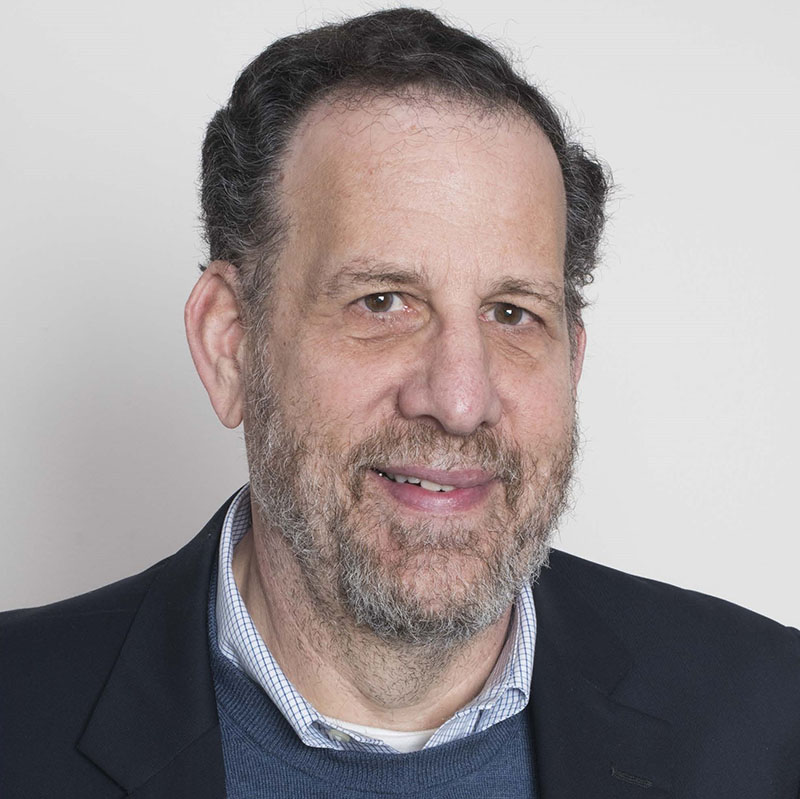
Len Saxe is the Klutznick Professor of Contemporary Jewish Studies and Social Policy at Brandeis University, directing the Cohen Center for Modern Jewish Studies and the Steinhardt Social Research Institute. An experimental social psychologist, he focuses on religious and ethnic identity, especially within the Jewish community. His research includes studies of antisemitism, American Jewry demographics, and Jewish education's impact on engagement. He leads a study of Birthright Israel and investigates the American Jewish population's characteristics. Professor Saxe has authored nearly 400 publications, served as a Science Fellow for the U.S. Congress, a Fulbright Professor at Haifa University, and received the APA’s prize for Distinguished Contributions to Psychology in the Public Interest and the Marshall Sklare Award. He also teaches at Brandeis University's Heller School and College of Arts and Sciences.
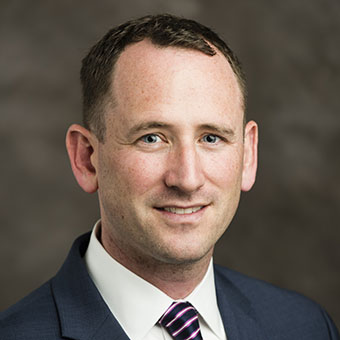
Eitan Hersh is a professor of political science at Tufts University. His research focuses on US elections and civic participation. Hersh is the author of Politics is for Power (Scribner, 2020), Hacking the Electorate (Cambridge UP 2015), as well as scholarly articles. Hersh earned his PhD from Harvard in 2011 and served as assistant professor of political science at Yale University from 2011-2017. His public writings have appeared in venues such as the New York Times, USA Today, The Atlantic, POLITICO, and the Boston Globe. Hersh regularly testifies in voting rights court cases and has testified to the US Senate Committee on the Judiciary about the role of data analytics in political campaigns.
Rachel Fish, PhD, serves as special advisor to the Brandeis University President's Initiative on Antisemitism and is co-founder and president of Boundless, an independent think-action-tank promoting Israel education and combating Jew-hatred. In addition, she teaches Israeli history and society at The George Washington University as Visiting Assistant Professor of Educational Leadership in the Graduate School of Education and Human Development.

Previously, she was the executive director of the Foundation to Combat Antisemitism, senior advisor and resident scholar at the Paul E. Singer Foundation in New York City, and executive director of the Schusterman Center for Israel Studies at Brandeis University, where she trained the next generation of academics in the field of Israel Studies.
Fish completed her dissertation titled, “Configurations of Bi-nationalism: The Transformation of Bi-nationalism and Palestine/Israel 1920’s-Present,” on the history of bi- nationalism and alternative visions for constructing the State of Israel. She has served on the faculty at Brandeis University, Harvard University, and The George Washing University, written articles for several publications in the mainstream press and academic journals, and co-edited the book “Essential Israel: Essays for the 21st Century.”
November 20, 2024
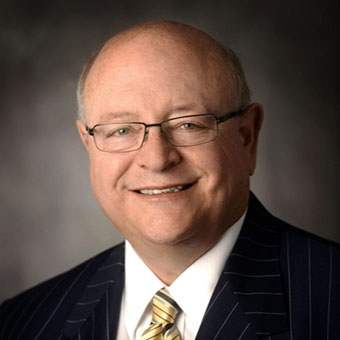
Chancellor Emeritus and constitutional law scholar, Mark Yudof, joined Rachel Fish in conversation about the challenges university leaders encounter on many campuses today: How do university administrators respond to student and faculty misconduct and address actions and speech that seek to incite hate toward Jewish and Zionist students and faculty? How do institutions of higher education continue to prioritize the value of freedom of speech while ensuring that a hostile environment is not created on campus? When is otherwise protected speech subject to time, place and manner restrictions?
Mark G. Yudof received his BA and LLB degrees from the University of Pennsylvania. After serving as a law clerk of the U.S. Court of Appeals for the Fifth Circuit, he spent two years at the Harvard Center for Law and Education. For 26 years he held various posts at the University of Texas, including professor of law, dean, and provost. He subsequently served as president of the University of Minnesota, chancellor of the University of Texas System, and president of the University of California. He currently serves as chair of the strategic planning and budget committee of the Academic Engagement Network.
 Rachel Fish, PhD, serves as special advisor to the Brandeis University President's Initiative on Antisemitism and is co-founder and president of Boundless, an independent think-action-tank promoting Israel education and combating Jew-hatred. In addition, she teaches Israeli history and society at The George Washington University as Visiting Assistant Professor of Educational Leadership in the Graduate School of Education and Human Development.
Rachel Fish, PhD, serves as special advisor to the Brandeis University President's Initiative on Antisemitism and is co-founder and president of Boundless, an independent think-action-tank promoting Israel education and combating Jew-hatred. In addition, she teaches Israeli history and society at The George Washington University as Visiting Assistant Professor of Educational Leadership in the Graduate School of Education and Human Development.
Previously, she was the executive director of the Foundation to Combat Antisemitism, senior advisor and resident scholar at the Paul E. Singer Foundation in New York City, and executive director of the Schusterman Center for Israel Studies at Brandeis University, where she trained the next generation of academics in the field of Israel Studies.
Fish completed her dissertation titled, “Configurations of Bi-nationalism: The Transformation of Bi-nationalism and Palestine/Israel 1920’s-Present,” on the history of bi- nationalism and alternative visions for constructing the State of Israel. She has served on the faculty at Brandeis University, Harvard University, and The George Washing University, written articles for several publications in the mainstream press and academic journals, and co-edited the book “Essential Israel: Essays for the 21st Century.”
October 1, 2024
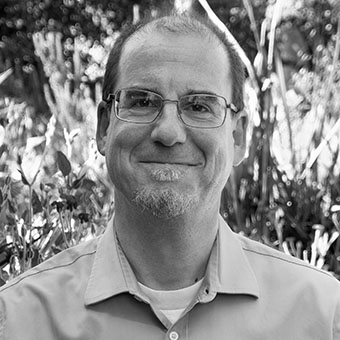
What is antisemitism, and how is it different from other kinds of racism? What forms does it assume and what are its primary tropes? When is anti-Zionism antisemitic and when is criticism of Israel antisemitic?
These questions and more were explored in this presentation, along with an understanding of how this impacts campus discourse among faculty and students.
Presented by Ron Hassner, Chancellor's Professor of Political Science and Helen Diller Family Chair in Israel Studies at the University of California Berkeley. He is also the faculty director of the Berkeley Institute for Jewish Law and Israel Studies and is the editor of the Cornell University Press book series “Religion and Conflict.” Prof. Hassner studies the role of ideas, practices, and symbols in international security with particular attention to the relationship between religion and violence.
May 8, 2024
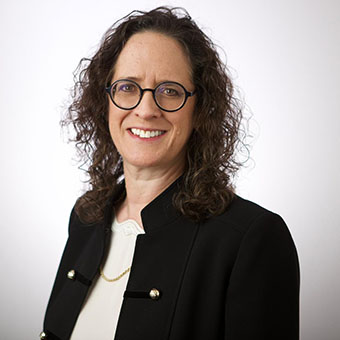 Presented by Alyza Lewin, president of the Louis D. Brandeis Center for Human Rights Under Law (“LDB”), a non-profit organization established to advance the civil and human rights of the Jewish people and promote justice for all. The Brandeis Center conducts research, education, and legal advocacy to combat the resurgence of anti-Semitism on college and university campuses. It empowers students by training them to understand their legal rights, and educates administrators on best practices to combat racism and anti-Semitism on campus. Ms. Lewin is also a co-founder and partner in Lewin & Lewin, LLP where she has specialized in litigation, mediation, and government relations. Her experience includes criminal defense, civil litigation, and anti-discrimination matters.
Presented by Alyza Lewin, president of the Louis D. Brandeis Center for Human Rights Under Law (“LDB”), a non-profit organization established to advance the civil and human rights of the Jewish people and promote justice for all. The Brandeis Center conducts research, education, and legal advocacy to combat the resurgence of anti-Semitism on college and university campuses. It empowers students by training them to understand their legal rights, and educates administrators on best practices to combat racism and anti-Semitism on campus. Ms. Lewin is also a co-founder and partner in Lewin & Lewin, LLP where she has specialized in litigation, mediation, and government relations. Her experience includes criminal defense, civil litigation, and anti-discrimination matters.Ms. Lewin received her B.A. from Princeton University and a J.D. from New York University School of Law. Ms. Lewin has also been trained as a mediator by the American Arbitration Association and the Center for Dispute Settlement.
April 17, 2024
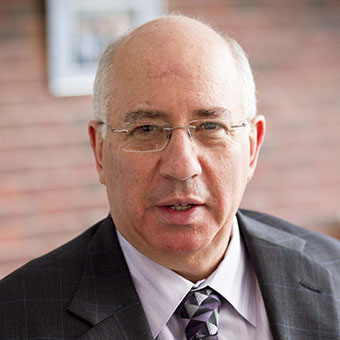 This talk will share the unique characteristics of the approach to teaching the Arab-Israeli conflict adopted at Brandeis University some 19 years ago. It will argue that this unique approach accounts for the civilized conversation and the lack of any emotional explosions in the classroom at Brandeis since 2005. It will also suggest that with some adjustments this approach can be applied to teaching other sensitive subjects such as those related to issues of gender and ethnicity.
This talk will share the unique characteristics of the approach to teaching the Arab-Israeli conflict adopted at Brandeis University some 19 years ago. It will argue that this unique approach accounts for the civilized conversation and the lack of any emotional explosions in the classroom at Brandeis since 2005. It will also suggest that with some adjustments this approach can be applied to teaching other sensitive subjects such as those related to issues of gender and ethnicity.
Presented by Shai Feldman, the Raymond Frankel Chair in Israeli Politics and Society at the Crown Center for Middle East Studies and Professor of Politics at Brandeis University.
From 2005 to 2019, he was the founder and Crown Family Director of the Crown Center. From 1997 to 2005, he served as head of Tel Aviv University’s Jaffee Center for Strategic Studies. He was a senior research associate at the Jaffee Center since its establishment in late 1977. In 2019-2022, he served as President of Sapir Academic College in Sha’ar Hanegev, Israel. Since 1997, he has also served as Board Associate of Harvard University’s Belfer Center for Science and International Affairs. Prof. Feldman's numerous publications include six books, the most recent of which is "Arabs and Israelis: Conflict and Peacemaking in the Middle East," with Abdel Monem Said Aly and Khalil Shikaki (second edition, London: Bloomsbury, 2022). He holds a PhD in political science from the University of California at Berkeley.
March 13, 2024
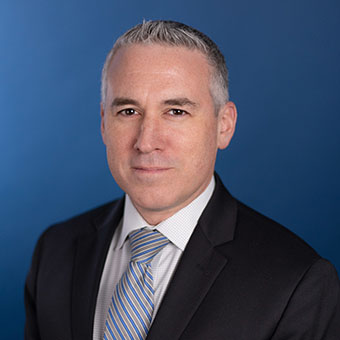
This talk delved into the financial aspects of individuals and entities associated with terrorist groups and, in turn, their connection to national organizations influencing campus politics and student groups.
Presented by Jonathan Schanzer, Senior Vice President for Research, Foundation for Defense of Democracies.
Previously, Dr. Schanzer worked as a terrorism finance analyst at the U.S. Department of the Treasury, where he followed and froze the funding of Hamas and Al-Qaeda. Jonathan has held previous think tank research positions at the Washington Institute for Near East Policy and the Middle East Forum. He has written hundreds of articles on the Middle East and U.S. national security.
His most recent book is "Gaza Conflict 2021: Hamas, Israel and Eleven Days of War" (FDD Press 2021). His other books are "State of Failure: Yasser Arafat, Mahmoud Abbas, and the Unmaking of the Palestinian State" (Palgrave Macmillan 2013), "Hamas vs. Fatah: The Struggle for Palestine" (Palgrave Macmillan 2008), and "Al-Qaeda’s Armies: Middle East Affiliate Groups and the Next Generation of Terror" (Washington Institute for Near East Policy 2004). Dr. Schanzer earned his PhD from King’s College London. He speaks Arabic and Hebrew.
February 28, 2024
 This seminar examined the nature and sources of institutional antisemitism in higher education, its relationship to a more general rejection of racism, and opportunities to challenge it.
This seminar examined the nature and sources of institutional antisemitism in higher education, its relationship to a more general rejection of racism, and opportunities to challenge it.Antisemitic ways of thinking are well entrenched in some places at the highest levels of academia. This fact is generally and angrily denied. Antisemitic ways of thinking are tolerated and protected by individuals and institutions that are not themselves antisemitic, but which constitute the powerful mainstream of universities. This culture in universities devalues opposition to antisemitism as unsophisticated and conservative. Antisemitic discourse is not recognised as such but it glows with radical and anti-establishment excitement; it is presented as liberational while Jews and their Zionism are associated with oppression and injustice. Antisemitism is often less suspect in academia than is opposition to antisemitism.
Presented by David Hirsh, Academic Director of the London Centre for the Study of Contemporary Antisemitism (LCSCA) and a Senior Lecturer at Goldsmiths, University of London.
The published monograph version of his PhD was "Law against Genocide", 2003; he published "Contemporary Left Antisemitism" in 2018 and "The Rebirth of Antisemitism in the 21st Century" in 2024.